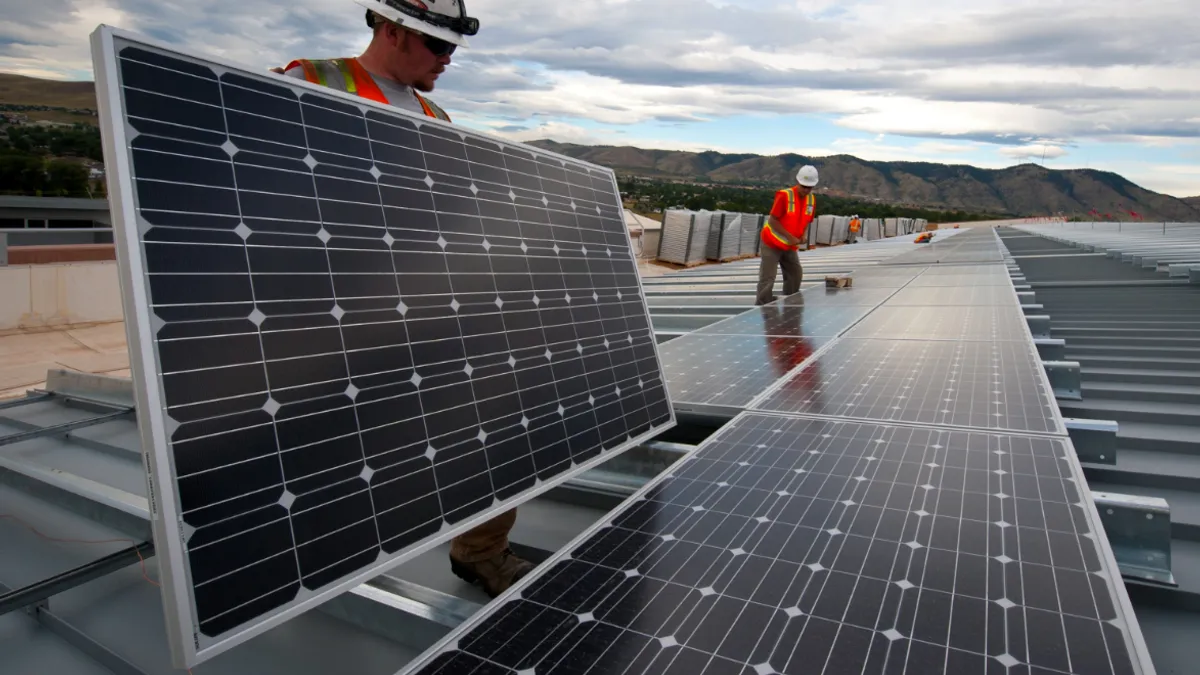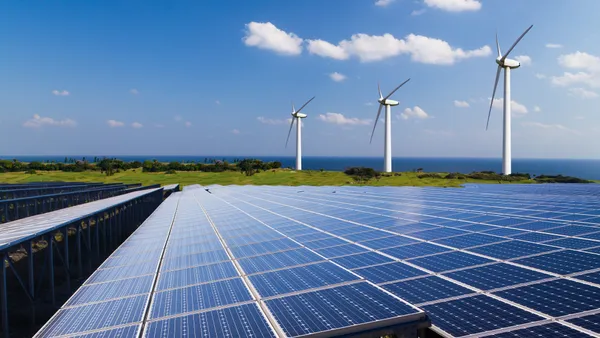Dive Brief:
- The Natural Resources Council of Maine has vowed to continue fighting new net metering restrictions, and will press for the state's legislature to overturn them before the end of the year, PV Magazine reports.
- In January, the Public Utilities Commission altered the state's net metering policies, grandfathering an existing customer's rate for 15 years but gradually reducing new customer incentives each year.
- The attempt to assuage both sides with a gradual phase-out has not worked. In addition to NRCM calling for roll-back legislation, Maine Gov. Paul LePage (R) said he'd like to see all the regulators replaced over the decision.
Dive Insight:
LePage and solar advocates are both opposed to new PUC rules on net metering, but for very different reasons. The governor wanted to do away with the incentive even faster, while advocates want them expanded. The PUC's decision made no one happy.
“NRCM will pursue every opportunity to overturn the PUC’s extreme anti-solar rules," NRCM's Dylan Voorhees said in a statement, hosted on EnvironmentGuru.com. Voorhees, who is the climate and clean energy director for the group, said the net metering review "has been a disgraceful process since it started."
PV Magazine points out the potential for quick action: the state's legislature is currently in session through the end of the month.
But Voorhees said in his statement that the "best and swiftest solution" would be for the legislature to enact a law protecting net metering. He also said the group will likely file a motion for reconsideration of the January decision. "The Legislature should be setting solar policy in Maine, not the PUC," Voorhees said.
Gov. LePage, a strident critic of residential solar, believes net metering customers are subsidized by others on the utility grid and has called for deeper cuts or the elimination of the program altogether. In February, he issued a statement saying Maine had moved from the 12th to the 11th-highest energy prices in the country, calling on lawmakers to take action.
"When Maine businesses are forced to pay more for energy and taxes it is less money the company is able to invest in its employees with higher wages and benefits," he said.
Under the decision, new solar customers who sign up after January 1, 2018 will see their transmission and distribution credit of the bill will decline over a 10-year span, but still receive a full credit for the supply side. For example, a customer who signs up in the first year of this policy will receive the fully supply credit and 90% of the transmission and distribution credit locked in for 15 years.














